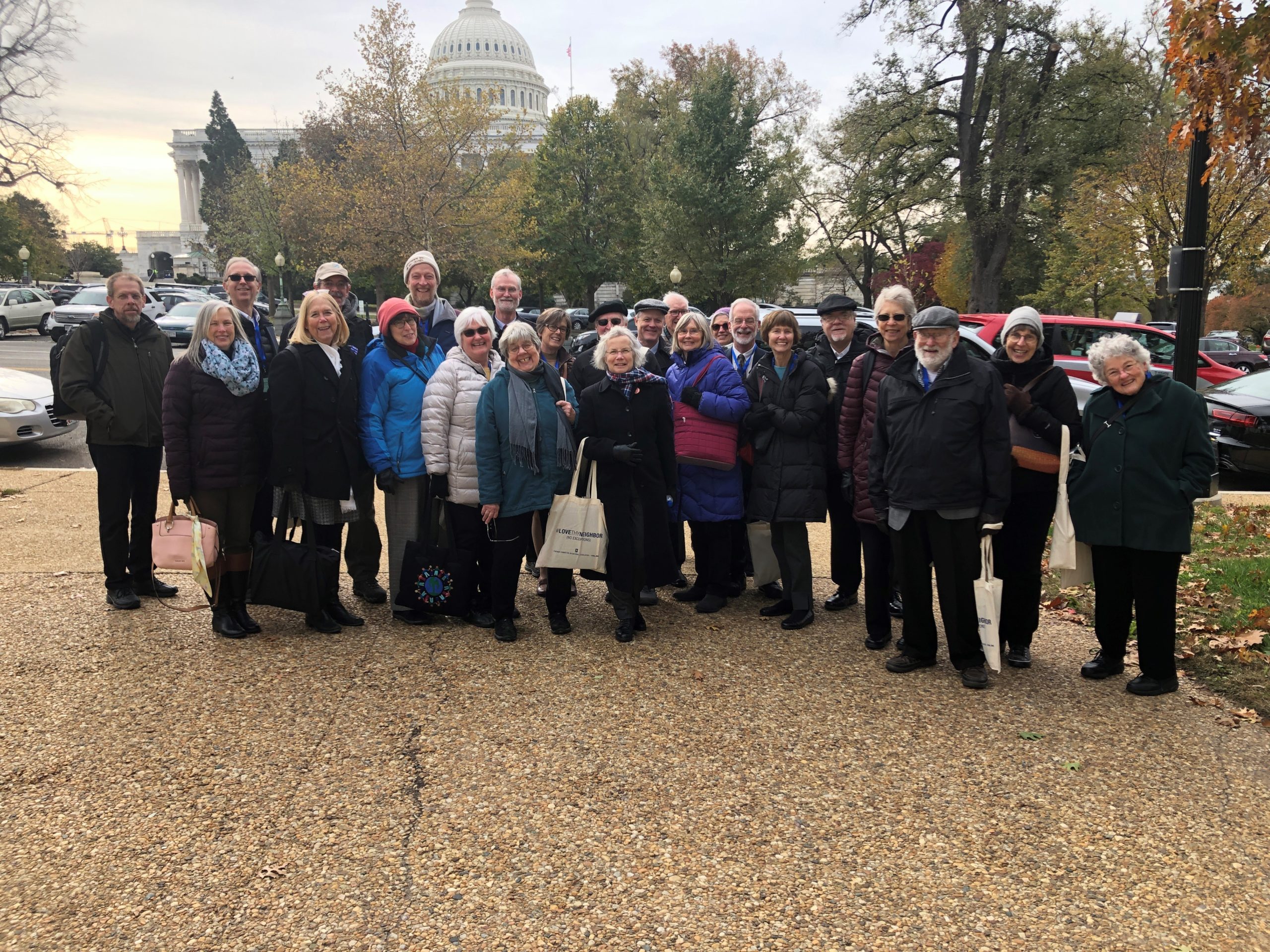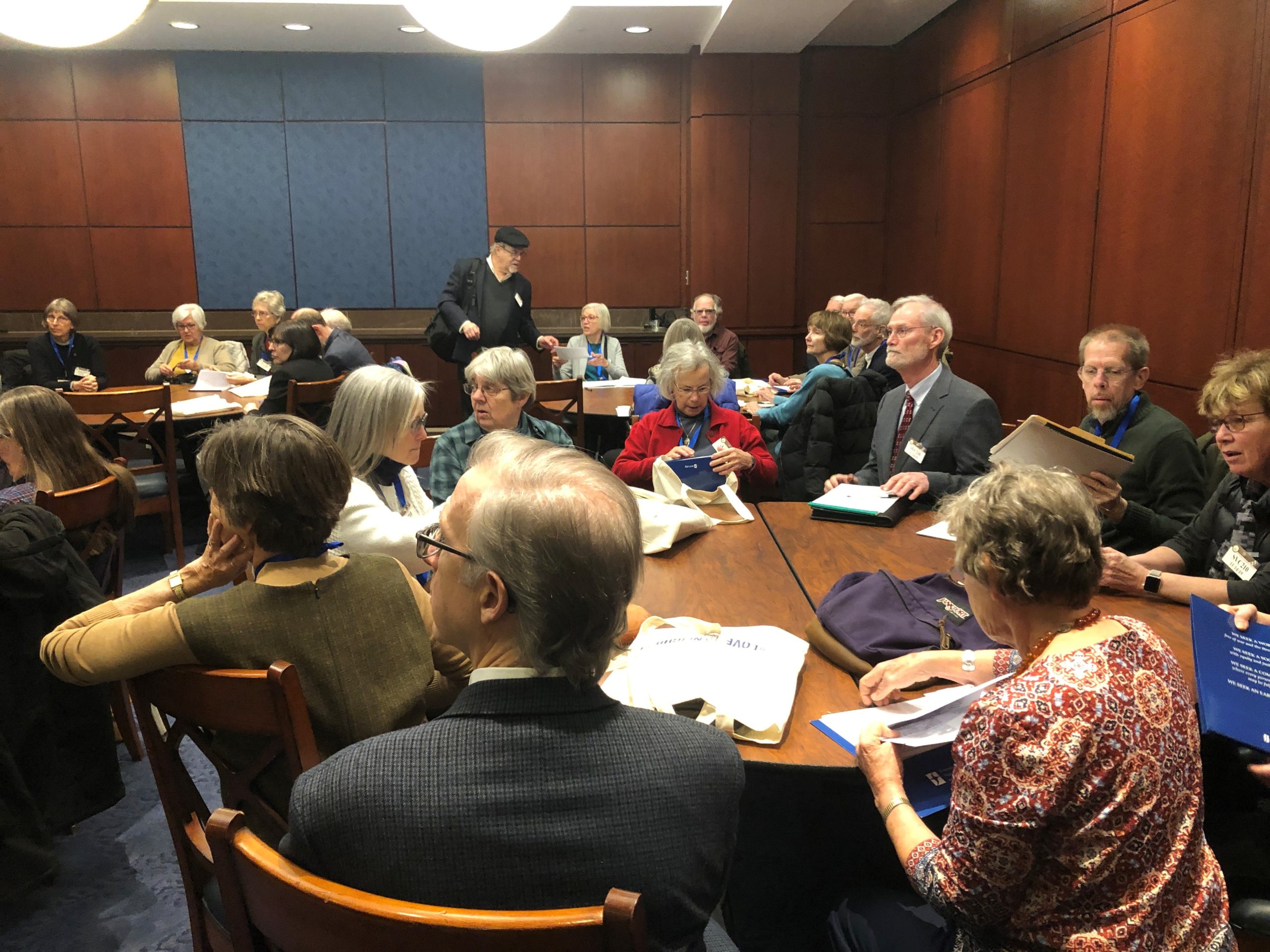
On Friday, November 15th, about 40 Friends from the Philadelphia Yearly Meeting (PYM) area joined 438 other Friends from 43 states across the United States for meetings on Capitol Hill, in Washington, DC.
They came together for a day of FCNL-orchestrated meetings with congressional representatives. Conversations centered on the authorization of open-ended war and were supported by the year-round work done by a small group of Quakers in the Philadelphia area. These Friends work with FCNL to impact global and national issues through political processes open to all members of the American electorate.

Joining that many Quakers on Capitol Hill is an exhilarating feeling. Friends, whether from California, Iowa, or North Carolina, entered the office of their representatives with tools to help shape positive discussions on legislation designed to support a more peaceful world.
Lynn Oberfield (Providence Meeting) reports; “we used FCNL’s lobbying process—which sets out one particular ‘ask’ around a standing Bill.” FCNL organizes lobbying only for legislation that has support from both political parties. It also shapes its targeted lobbying to be aligned with feedback previously collected from meetings across the country. FCNL staff then spend Thursday educating the volunteer lobbyists in advocacy best practices.
On Friday the volunteers launch themselves into the corridors of Capital Hill for a full day of face-to-face meetings with Senators and congress persons.
“This year,” Lynn says, “our FCNL-supported ask was to repeal the 2002 Authorization for Use of Military Force (AUMF). The Authorization, with its unbridled, blanket permission, has been used to continue, or begin, new wars in the Middle East and around the globe. As a result of repeated authorizations, the United States now has active troops in about 40 countries around the world.” Lynn notes that US service persons are not deployed as “peacemakers, but (are) men and women (being placed) in harm’s way.”
The delegations from the PYM region secured an in-person meeting with Senators Toomey and Casey. This, Lynn notes, “was due to the (prior) building of relationship … by reasoned, and reasonable, Quakers who worked over three years. Because the Constitution places the power to declare and wage war with Congress, and this 2002 Authorization gave away that power to the Executive branch, it is not aligned with the (original) intent of the writers of the Constitution.”
In fact, Lynn, says, “the waging of war now rests potentially in the hands of one person in the Executive branch” and for some Friends, that does not feel “consistent with the world we seek.” Friends testimonies are naturally focused on using peaceful means, not conflictual ones, to solve problems and “we Quakers, striding across Capitol Hill, were animated by our faith to represent our viewpoint, tell stories about militarism gone awry, and ally with our representatives in common purpose to seek an end to endless war.”
To learn more about FCNL’s process for lobbying, on poverty, mass incarceration, and the environment or become more informed about what is happening in Congress, contact Deb Hejl or Mary Lou Hatcher at the Legislative Policy Collaborative.
Collaboratives are groups of Friends in the PYM region who join together to respond to shared interests in the areas of worship, Native Peoples, ministry, the environment and civic concerns. A full list of engagement opportunities is found at https://www.pym.org/working-together/